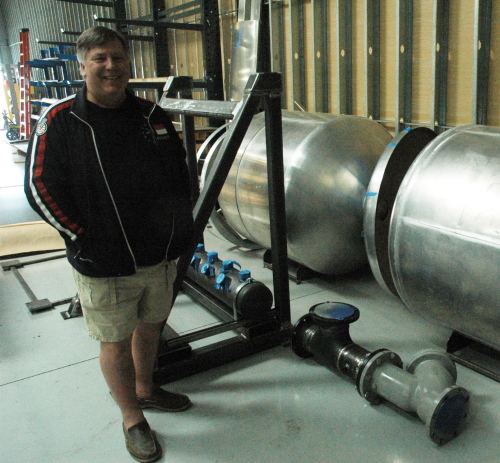Two stories yesterday illustrate how Russia’s invasion of the Ukraine has forced two different space companies, one American and the other Ukrainian, to adapt and change in order to help the Ukraine.
First, SpaceX once again demonstrated its ability to adapt, revise, and even redesign its products with lightning speed, based on unexpected facts on the ground.
After SpaceX sent Starlink terminals to Ukraine in February in an apparent effort to help Ukraine maintain its internet connection amid war with Russia, SpaceX founder Elon Musk claimed that Russia had jammed Starlink terminals in the country for hours at a time. After a software update, Starlink was operating normally, said Musk, who added on March 25 that the constellation had “resisted all hacking & jamming attempts” in Ukraine.
The speed in which SpaceX overcame Russia’s jamming was so fast that the American military was gob-smacked.
“From an EW technologist perspective, that is fantastic. That paradigm and how they did that is kind of eyewatering to me,” said Dave Tremper, director of electronic warfare for the Pentagon’s acquisition office. “The way that Starlink was able to upgrade when a threat showed up, we need to be able to have that ability. We have to be able to change our electromagnetic posture, to be able to change very dynamically what we’re trying to do without losing capability along the way.”
In other words, the Pentagon is incapable at present of doing the same thing, and now realizes it should be. The real lesson this government entity should take from this however is to stop trying to build anything at all. Hire the private sector. Let it do the work. Competing privately owned companies can always beat the government at this game. Always.
The second story involves the Ukrainian company Lunar Research Service, which until the war had used its 3D-printing technology to build components for a number of space missions, including lunar rovers. That changed immediately with the invasion.
The start-up was just about to ship its first batch of nanosatellites to their Kickstarter backers, but priorities changed within days, the company’s chief technology officer Dmytro Khmara told Space.com in an email. Instead of going to the customers, the nanosatellites were taken apart and the components handed over to the military.
Since then the company has reprogrammed its 3D printers to build parts for the Ukrainian military, including gun parts.
Though company officials say they hope to return to building components for space, circumstances might not allow it. As long as the war grinds on, the company’s profits will be found in helping the Ukriane’s military.

